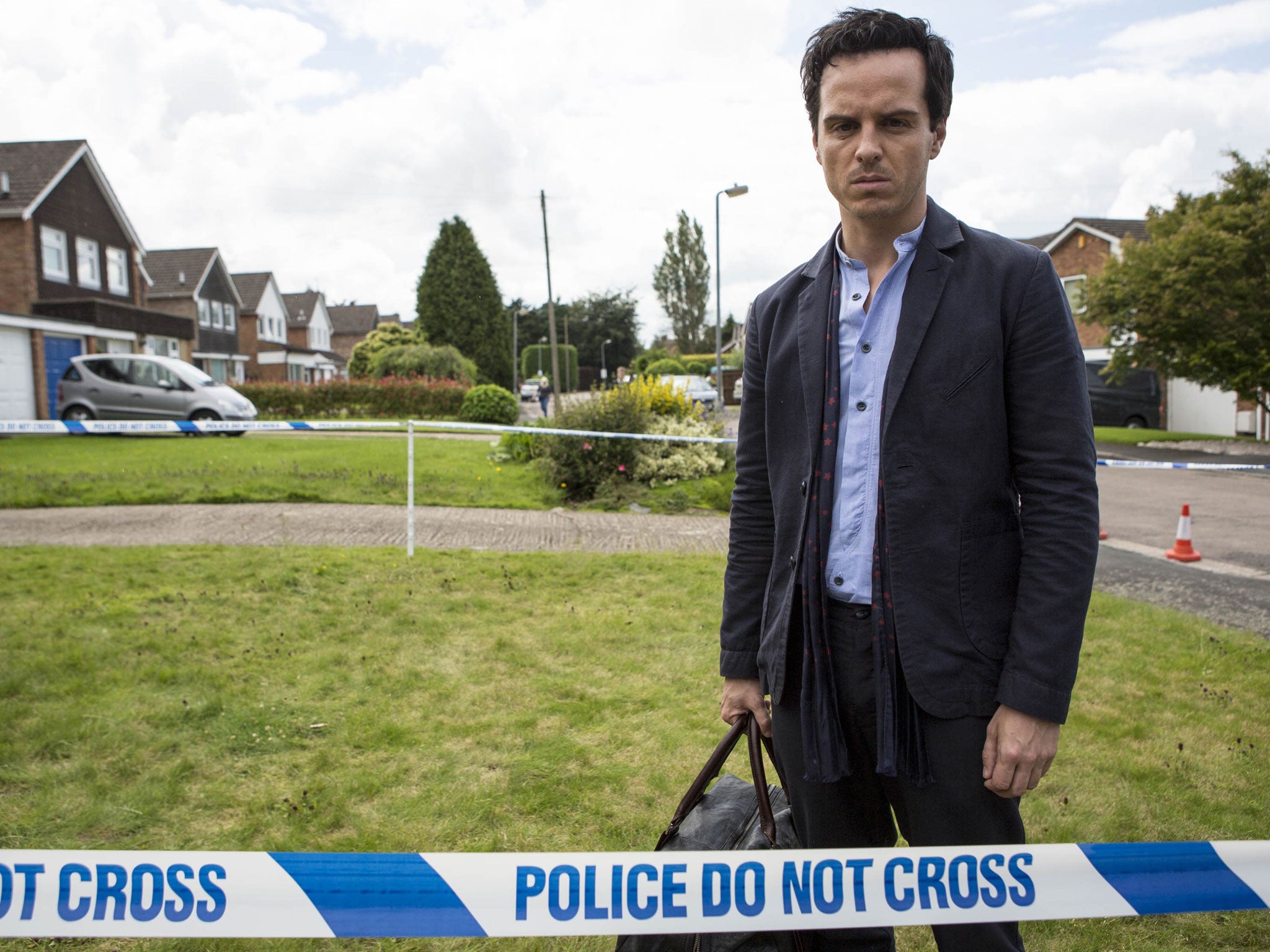IoS TV review: The Town, ITV1, Wednesday The Dark Ages, BBC4, Tuesday Rome's Lost Empire, BBC1, Sunday
Andrew Scott stars in a drama that delights in fooling the viewer – or just causing confusion

I could be entirely wrong about this, so bear with me. But I think ITV has pulled off quite a trick with its drama serial The Town. It began last week with a scene of true discomfort: late in the evening, a suburban middle-class mother does the rounds of her household – mum, dad, daughter, gran – and heads to bed with her husband. The next morning they're found dead, apparently from an overdose. Of some discomfort to us was the fact that they had just killed off Phil Davis and Siobhan Redmond, the kind of talent prime-time ITV wouldn't usually leave grey-cheeked under a duvet five minutes into episode one of three.
What has since followed has been no less wrong-footing, if more subtly so. The plot, to be sure, is travelling in a familiar direction. The death of his parents forces Mark (Andrew Scott), the family's son, back to his home town from London, at first to sort out the funeral arrangements, and then to begin wondering whether his parents' demise is the suicide pact the police believe it to be. We watched as his presence, predictably, upset the status quo. You know what I'm talking about: teenage sister (Avigail Tlalim) acting up, overlooked gran (Julia McKenzie) forced back into the job market to put bread on the family table, an old flame of Mark's reigniting, and beyond that an increasingly unlikely circle of complicity involving the mayor (Martin Clunes), the investigating police officer, the undertakers and even, somehow, a local florist.
Last week's second episode piled coincidence upon unlikely coincidence – the most shameless involved gran, in her new job as a hotel cleaner, discovering her colleague was the undertaker at her daughter's funeral, immediately before she walked into the aftermath of her grandson's clinch with his ex-girlfriend. Julia McKenzie is to be congratulated for keeping her dignity as the plot lost seemed to lose its.
Now, it could be that the writer Mike Bartlett is betraying his theatrical origins – perhaps such soapy over-exertion might be passed off, one way or another, on stage. But let's be generous. Because there is enough sharp characterisation and decent writing to give Bartlett the benefit of the doubt. The lead actors seem to be enjoying themselves too, Andrew Scott particularly. We know Scott from his campy turn as Moriarty in Sherlock, and have had a glimpse in this series of the crazed goblin that lurks inside his more or less dutiful son. Set against all this, uneasily, is the dreamy summer setting, the woozy lighting and the ripe musical score.
All of which amounts to ... what? An ingenious satire on prime-time mainstream television drama on prime-time mainstream TV? Or a playwright given the keys to a big, gas-guzzling telly genre and just putting his foot to the floor? The former, I think, but who knows? I'll certainly tune in this week in the hope of illumination.
There has been plenty of light in Waldemar Januszczak's series The Dark Ages. His thesis – that the world a millennium and a half ago was an altogether less glum place than the name suggests – is not revelatory. But his idiosyncratic enthusiasm for the cultural highlights decidedly is. Last week's subject was early Islamic art and its talent for, among other things, hydraulics, astronomy and saucy frescos of "high-bosomed virgins".
He galumphed about the extent of the eighth century Caliphate, disarmingly spreading a battered old map on the ground now and then, delivering his deadpan aperçus. The Dome of the Rock, he told us, was such an unexpected architectural hit it was "like a flying saucer or something, that's landed out of thin air".
Two days before, the BBC's history department showed us where its cash had gone. In Rome's Lost Empire, Dan Snow followed an American academic as she used pioneering satellite photography to uncover new aspects of the Roman empire's infrastructure, most impressively the possible location of the great lighthouse of Portus, on the west coast of Italy. Snow had much that Januszczak didn't: the toned triceps, the iPads and, by the raised eyebrows of the archaeologists featured, what appeared to be some genuine historical revelation. Of charm, though, there was little to be found.
Subscribe to Independent Premium to bookmark this article
Want to bookmark your favourite articles and stories to read or reference later? Start your Independent Premium subscription today.

Join our commenting forum
Join thought-provoking conversations, follow other Independent readers and see their replies